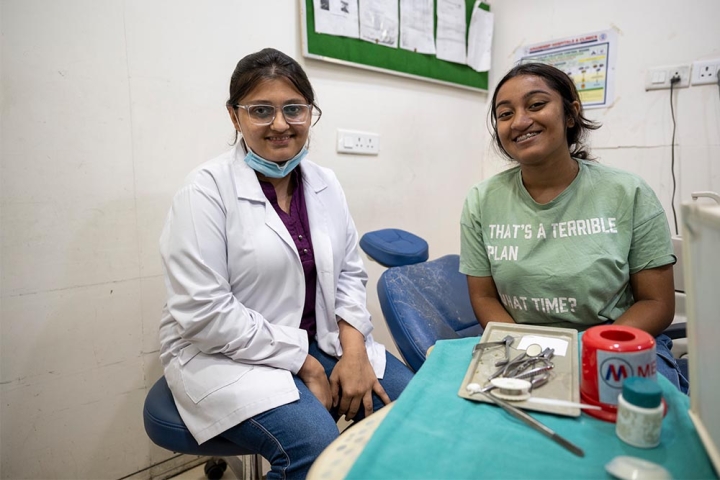Oral health
Access to cleft-specialized dental care ensures good oral hygiene and a lifetime of smiles.

Dental Care
All children need access to dental care in order to ensure a lifetime with a happy smile. This includes education about a healthy diet and the tools required for daily brushing, flossing, and rinsing. In addition, regular appointments with a dentist to maintain oral health and provide restorative care, when needed, are important
Children with clefts need access to specialized dental services. They are much more likely than their non-cleft-affected peers to suffer crooked teeth, gum disease, and tooth decay.
Because children born with clefts have unique oral health needs, it is important that they receive dental care services from professionals familiar with cleft lip and/or palate and that their caregivers are closely involved. If their susceptibility to decay is ignored, they may end up losing teeth at an early age. This could cause further complications and can adversely affecting chewing, speaking, sleeping and self-esteem, and even compromise the success of cleft surgeries.
Pre-surgical Infant Orthopedics
Often referred to as PSIO or NAM (naso-alveolar molding), this treatment may be recommended for children with moderate to severe clefts because it has the potential to decrease the cleft’s size and its effect on the nose. If recommended by a surgeon, and if caregivers agree to the treatment, PSIO are applied when a child is one to six weeks of age and continue until the first cleft surgery is completed.
PSIO may include taping across the lip, a palate obturator, and/or a device to lift and remodel the nose. They are usually applied by an orthodontist. Caregivers should make daily adjustments at home and bring their child for follow-up on a regular basis. Studies suggest that PSIO improve immediate cleft surgery outcomes and decrease the need for future cleft surgeries.
Orthodontic Care
Children with clefts often need orthodontic services. Cleft orthodontics is focused on aligning teeth, monitoring facial growth, and straightening bites. It may be required at various stages of development based on the surgical procedures the child needs. Since many cleft orthodontists will recommend liquid diets during and after orthodontics and surgery, we have prepared an "Ongoing Feeding & Nutrition" page with information and links to helpful recipes.
Information for Families
Oral health starts at home. These documents help families better understand and support the unique oral health needs their child may have throughout each stage of their life.
| 0-2 Years | 2-6 Years | 6-12 Years |
| 12-18 Years | 18+ | Lift the Lip |
